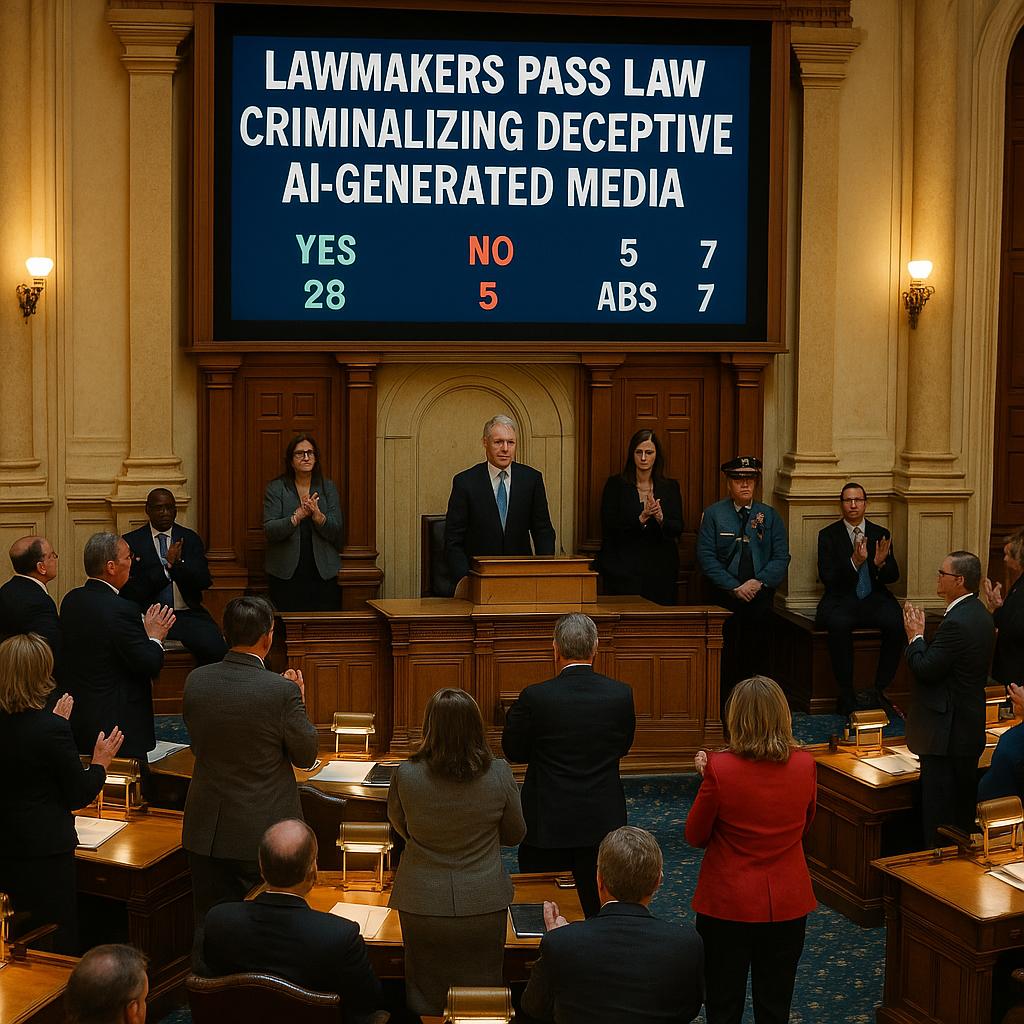Taking Action Against Deepfakes
New Jersey lawmakers have made history. On April 2, 2025, Governor Phil Murphy signed a new law that makes it illegal to create or distribute deceptive AI-generated media—commonly known as deepfakes.
This law directly targets anyone who uses AI to manipulate video, audio, or images with the intent to mislead or harm others. It brings both criminal charges and civil penalties for offenders.
👉 Read the full press release
Why Deepfakes Are Dangerous
Deepfakes may look real, but they are not. These videos or images show people doing or saying things they never actually did. As AI tools become more powerful, anyone can create deepfakes in minutes—and that’s exactly why this law matters.
One heartbreaking case inspired this new law. A student named Francesca Mani became the target of explicit deepfake images at her high school. Because New Jersey had no legal protections in place at the time, the person responsible faced minimal consequences. Francesca’s experience helped lawmakers understand the urgent need for stronger digital protections.
👉 Learn more from the AP article
What the Law Says
The law defines Deceptive AI-Generated Media (a deepfake) as any realistic digital media that falsely shows someone doing or saying something. If a person uses deepfakes to commit a crime, they can face:
- Up to 5 years in prison
- Fines of up to $30,000
- Civil lawsuits from victims seeking justice
Unlike earlier regulations, this law focuses on both the intent and the impact of deceptive content. Victims now have a clear legal path to hold perpetrators accountable.

Strong Support from State Leaders
Governor Murphy called for responsible use of AI, saying technology should never be used to spread lies or hurt others.
Lieutenant Governor Tahesha Way warned about the threat to democracy, especially during elections.
Attorney General Matthew J. Platkin added that the law sends a clear message: AI abuse will have consequences.
👉 Read all their statements here
Part of a National Trend
New Jersey isn’t alone. Over 20 other states have already passed laws targeting deepfakes. These laws often focus on election security and digital child exploitation. But New Jersey’s approach stands out for offering stronger protections and more options for victims.
Final Thoughts
New Jersey’s new law shows how states can lead in holding AI users accountable. By cracking down on deepfakes, lawmakers aim to protect people from reputational harm, misinformation, and digital abuse.
As AI continues to evolve, laws like this one will be key to keeping technology in check—and keeping people safe.


